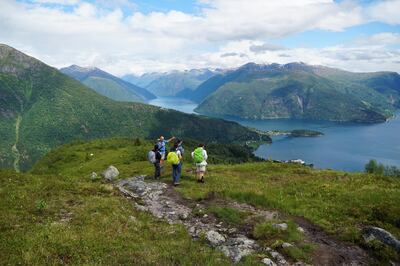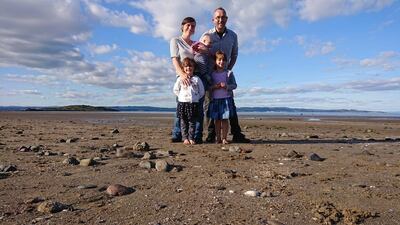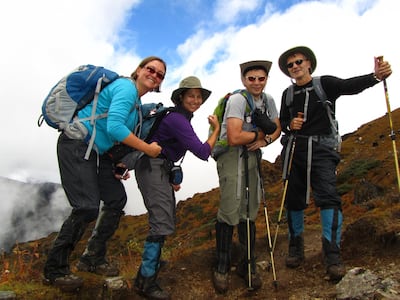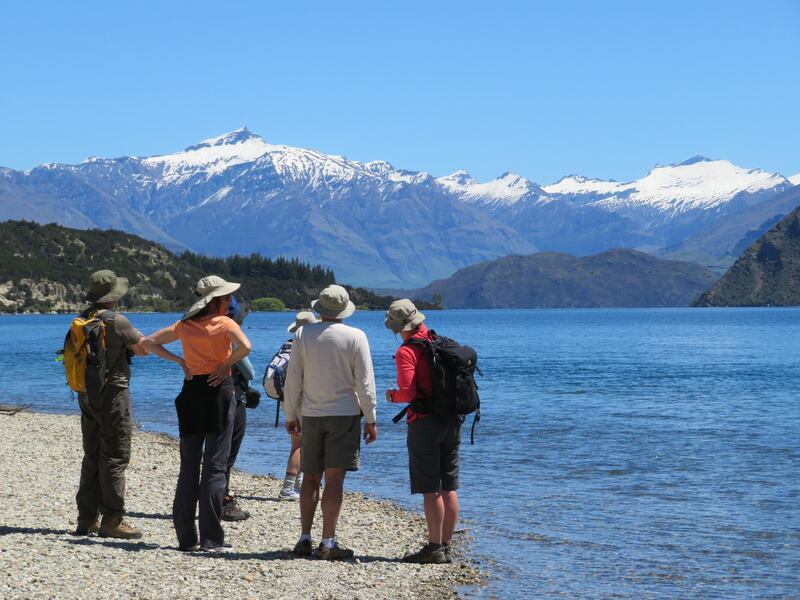“The phone only rings for those wanting to reschedule or cancel journeys. There is no new business coming in, and guests are not paying for already scheduled trips,” notes Matt Holmes, founder of Boundless Journeys.
Having been in business for more than 25 years, Holmes' adventure travel company is facing its toughest ever test in the face of the coronavirus pandemic. "We will be affected for a long time, and we are not expecting that people will be travelling for at least a few months," he says. "We are hoping for the best, but preparing for the worst."
International travel bans
To date, more than two billion people – approximately a quarter of the world’s population – have been asked or ordered to stay at home. That number is growing every day, with no less than 50 countries, at the last count, having suspended all incoming and outgoing passenger flights.
The UAE is one such country, having halted all air travel on March 24. For Robin Kamark, chief commercial officer at Etihad Airways, this signifies a changed world. “It’s something that I’ve never experienced before. There is nothing that is normal in this situation,” he says.
Not the first, but the worst
This is not the first crisis to batter the travel industry. “We went through 9/11 and the economic downturn of 2008,” says Mar Naibi of US tour operator Pure Adventures. “But this is much different, much worse, as the entire world is affected – it’s on an entirely different level. During 9/11, people were scared for a while and then they decided enough was enough, they wanted travel back in their lives. In 2008, only a certain percentage of the population were affected, many others still had money to travel. Now, businesses are closing daily, people can’t leave their homes.”
Travel goals

For people living in lockdown, thoughts of summertime road trips or scuba-diving holidays are understandably not high on the agenda. With worldwide uncertainty regarding travel, it’s tempting to to pick up the phone and cancel any plans, vowing to remake them again when the time is right.
But that’s exactly what the travel and tourism industry is urging people not to do. The hashtag #postponedontcancel is already doing the rounds on social media, as tour operators, travel agents, destinations and travellers use it alongside pictures of previous adventures.
More than 10 per cent of the world’s population works in travel and several of these people have lost their jobs or their businesses overnight. The crisis has affected everyone from major hotel groups and airlines to local tour guides, mountain sherpas and housekeeping staff.
“Think about your favourite safari guide in Botswana. The Tour du Mont Blanc guide that put out the beautiful picnic spread high in the Alps. Your Bhutanese guide that was so proud to introduce you to his country. The Peruvian guide that helped you understand the mysteries of the ancient Incas. All of these people and their families are going to be affected and hurt by the economic fallout from Covid-19,” says Holmes. High in the Peruvian Andes of Cusco, Mark Smith has been running a family-orientated tour agency called Amazonas Explorer for three decades. A member of the Adventure Travel Trade Association, his business, like most in the region, operates on a seasonal basis. “The season in Peru ends at Christmas and starts again in March, so it simply did not start this year. All bookings have stopped,” says Smith warily.
Patience is a virtue

For many travellers, seeing the world is intrinsic to their well-being, so travel will never be fully off the agenda. But our decisions in the short-term will have far-reaching consequences. Edinburgh resident Kathrin Dougal, a busy working mother of three, recently made the decision to postpone her family’s upcoming trip to Northern Ireland.
“We are living in an unprecedented situation that nobody is to blame for and if postponing means that I can help another person keep going, then I think it’s important not to pull the plug, so long as I’m in a financial position to do so,” says Dougal. “Plus, it means we have a family holiday to look forward to when this is all over,” she adds.
The pros of postponing
According to a study in the journal of Applied Research in Quality of Life, planning or anticipating holidays can make you just as happy as taking them. And for Brittany Haas, founder of US-based boutique adventure travel company Alpenventures Unguided, having a trip booked is a welcome distraction in what is otherwise a spectrum of crazy. "In a world where everything seems to be spiralling out of control, there is still so much that remains within our control," she says.
Postponing a trip might also be a lot easier to do at present as airlines, hotels and tour operators have introduced flexible booking conditions to combat some of the fallout.
In Thailand’s Koh Samui, all-villa resort Samujana has introduced a two-year rebooking policy for anyone that had planned to visit. Off the coast of Tanzania at The Residence Zanzibar, there’s a similar rebooking plan in place. “We’ve advised guests with travel plans affected by the virus outbreak that they may be able to defer their stay with no penalties until March, 2021,” reveals Syed Aftab, director of sales and marketing at the resort.
In the UAE, Emirates and Etihad have joined others around the world in relaxing booking policies. The national airline has also introduced a scheme called Etihad Credit to make rebooking simpler. “We have eased up all ticket restrictions; you’re able to rebook within a year and – if you’re an Etihad guest or register for the programme – you’ll be given credit bonuses in the form of air miles,” explains Kamark.
Travellers who opt to postpone rather than cancel booked holidays might even be able to upgrade their trips. “Most tour operators will probably be willing to offer incentives for postponing, such as locking in this year’s price,” offers Haas.
This advice is echoed by Karen Slocombe, director of sales and marketing at Samujana. “Instead of cancelling, reschedule and ask for some extra benefits instead, such as a free upgrade or a high season period when you have paid a low season rate.”
The end of the tunnel

Travel has always been as much about the people you meet as the places you go, and the current pandemic has highlighted how interconnected we all are. “We are social creatures and we will be that even after the coronavirus. We need to interact, we need to be social, we are all going through difficult times, but we will prevail,” says Kamark.
Which is why there is light at the end of this pandemic tunnel. “In all seriousness, it’s hard to know at this point what the traveller psyche will be once we have this behind us. It’s hard to stop exploring the world if it’s what you truly love to do,” says Holmes. “I expect there to be a rush on travel when we are back at the point where everyone feels comfortable getting on a plane and exploring the world again.”
From his vantage point in Cusco, Mark Smith also suggests that this period of forced pause could serve as a chance for the world to reconsider issues like overtourism, climate change and sustainable travel.
“Look at how nature is now creeping back into certain areas, how the air is cleaner than it was a month ago and you can see that our way of living had some big negative effects,” he says.
“Hopefully we can all use this time to realise that how people were living and doing business was not sustainable.”







